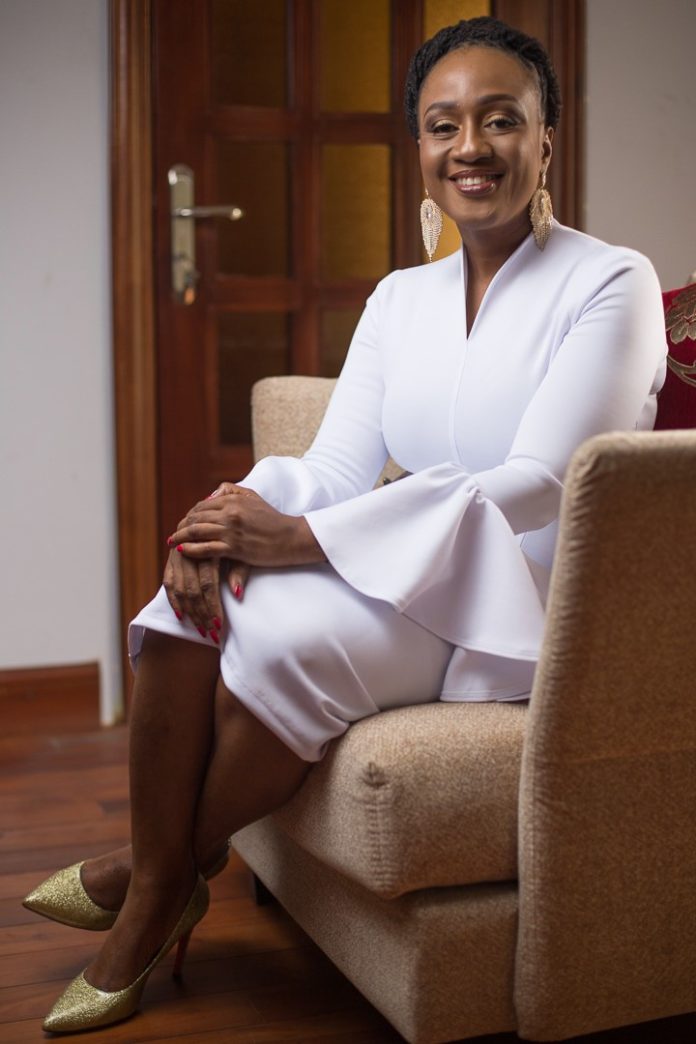
Communication remains one of the most vital components of long-lasting relationships. In various ways, the essence of it has been undermined because people do not give the time and day to integrate strong communication skills into their DNA. Right from when we meet a person, engage them, make a connection, nurture that connection and develop a relationship, we are required to tap deep into our communication banks and apply key soft skills that can make or break our process of building the relationship.
A lot of people may consider relationships to be a thing of nature, when in fact, relationships are products of nurture. Work relationships, business relationships and casual relationships, if successful have in common one thing; intentionality. To be able to maintain successful relationships, we must maintain open and clear lines of communication, being intentional about what we say and how we behave. We align them to the likes of growing a plant, where the plant starts as a seed. There are various ways in which we grow that plant. You put in the various things and watch it with tolerance and endurance. Sometimes, some plants can come out of the ground beautifully but will wilt and you will have to go back again and replant new seeds, this time nurturing it a little differently based on what you know the plants likes and does not like.
Personally, and professionally, relationships are at the center of who we are. Whether they are with a parent, spouse, or child, or your boss, team, co-worker, or business partner, your most important relationships are worth the time and care you put into them. As a leadership coach and business consultant, I see the benefits of making your most important relationships a priority every single day. Great relationships not only make working easier; they also improve productivity. Deeply connected relationships cultivate trust and mutual respect. Relationships take effort and hard work, but like anything important in our life, they are well worth preserving.
We spend a lot of our time at work. Getting along with people there makes work a better place to be. Our relationships at work can have an impact on job satisfaction, learning and using our skills, staff turnover, morale, taking time off, and even our quality of life. It is also important for team work. If you respect and understand the other people in your team, you will value their opinions and take the time to consider them. That makes for a more productive and positive workplace.
Dunbar (1998) suggested that when individuals experience social pain in the workplace from feeling isolated, for instance, the region of the brain which is activated is the same as if physical pain had been experienced. Conversely, when relationships in the workplace are characterized by cooperation, trust, and fairness, the reward center of the brain is activated which encourages future interactions that promote employee trust, respect, and confidence, with employees believing the best in each other and inspiring each other in their performance (Geue, 2017). Put simply, when people experience positive relationships, the body’s ability to build, maintain, and repair itself is improved both in the workplace and in non-work related leisure and resting times.

Every great relationship starts with self-clarity and self-awareness. You first get to know yourself before trying to know someone else. That way you may fully understand your thought, emotions and actions during your interactions. You self-decode and then go on to encode them with novelty, knowledge and substance, finding ways to keep them in high momentum and excitement over time. Even in stages of boredom, in stages of challenge or trouble there are different ways to make these people go through and challenge the real essence of the relationship to elevate beyond its standard. The best relationships in this world are not the ones that were gotten simply through charm, but they are the ones that are gotten through challenge, the relationships that are decoded and encoded. These are the relationships that go through the workings of influence, persuasion, novelty and stages that get to many years of consolidation.
Here are 4 key points to boost the consolidation of relationships:
- Interaction
You need to stay interactive to nurture relationships by keeping constant communication going. The first step to this is decoding. Decoding a person requires effort and not only listening to a person’s words but reading their body language and micro expressions. Micro expressions are not peculiar to certain individuals. They occur as involuntary expressions of a person’s true emotions. A few of them are anger, contempt, happiness, fear, surprise, disgust, doubt and sadness. They are usually hard to hide as they occur in unconscious repression in the mind. Being able to detect these little tweaks in a person’s facial expression and mood can be an added skill when it comes to social human interactions. According to Dr. Ekman, being able to apply your knowledge in detecting micro expressions will improve your relationships by nurturing your capacity to empathize and understanding people by aligning what you hear them say and what is expressed in their body language. When you are properly aligned with the information you are receiving from a person, you are one step ahead in understanding what they are communicating to you. That way, you can rid yourself of assumptions and give a clever response rather than a reactive one. One significant thing to note is that, when you respond properly, it establishes a more enlightened connection which matures into consolidation when your take time to nurture it.

- Ingenuity
After you have managed to decode an individual and understand their way of communication, the next step is to be ingenious about the content of your communication. The reality is that business relationships are just like any other relationships. The same amount of work is required to sustain them. In building long lasting relationships, it is important to always be of value and bring something new to the table. Your value can be found in the substance and the content of your communication. This process can be likened to having a product whose brand you have introduced to a certain group of people. Even though you are known, it is important to engage your market with commercials and new findings, sometimes even promotions. In the same way, when the aim is to maintain a long-lasting relationship, boredom may creep in and innovation must be at the core of what you communicate. Take some time to do something new for yourself or with the other individual to give you something fresh to focus on for another mile. “Without strong relationships, it is impossible to have success as a business owner,” says Michael Denisoff, founder and CEO of Denisoff Consulting Group. Is your communication teaching anything new? Is your communication interactive? More importantly, you need to be interested in what the other individual is interested in and has to offer. There is a sense of trust that is established when a person feels that you are looking out for them.
- Credibility
Credibility or trust is one of the basic blocks on which a long-lasting relationship is built, and without it, the entire grand structure may slowly fall apart. Are you able to follow through with actions when you say something? Can people trust your word? When you make a commitment or promise, make sure you deliver on it. This is one of the surest ways to build credibility. If people know they can trust your word, they can also entrust you with their time, business and money. Trust is earned over time. Take the pains to build trust in your relationships to be more effective.
- Authenticity
Authenticity is another key factor in building and nurturing business relationships. According to an article by Neil Patel, statistics say that 63% of people buy from authentic brands, compared to brands that hide their ‘true selves’. One effective way to be credible is to be the best version of yourself and build your integrity. Be yourself as freely as you can but know your boundaries. What do you value in life, what do you stand for? One of the best relationships anyone can have is with themselves, and with that, you can properly channel the same lessons in dealing with other people. If you are in constant honest communication with yourself, you will first be true to yourself and then to others. Whatever defect or rot is in you often does not stay hidden for long. So, detect the cracks and fill in where you lack. When you make a mistake, be bold in admitting it and going to turn the blunder into an opportunity. Being defensive about your flaws gives the impression that you are unwilling to learn and people have a hard time trusting such people.
Nurturing your relationship ‘tree’ is a painstaking effort which demands time and care. As you apply these key points to consolidate your relationship, you will all begin to reap great mutual benefits.
Are you ready for TRANSFORMATION?
Dzigbordi K. Dosoo: The H.E.L.P. Coach
Dzigbordi K. Dosoo is a Personal Impact, Professional Growth and Influence Expert specializing in Humanness, Entrepreneurship, Leadership and Power – H.E.L.P.
A career spanning over two decades, she has established herself as a Certified High Performance Coach, Speaker, Author, Wellness Expert and award-winning Entrepreneur with a clientele ranging from C-Suite Executives, Senior Management, Practitioners and Sales Leaders spanning 3 continents.
She is the Founder of Dzigbordi K. Dosoo (DKD) Holdings; a premier lifestyle business group with brand subsidiaries that include Dzigbordi Consulting Group& Allure Africa.
Dzigbordi has been featured on CNN for her entrepreneurial expertise. She is one of the most decorated female entrepreneurs in Ghana having being named “CIMG Marketing Woman of the Year” in 2009; “Top 10 most respected CEOs in Ghana, 2012; Global Heart of Leadership Award and, Women Rising “100 Most Influential Ghanaian Women”, 2017.
She can be reached on [email protected] and @dzigbordikwaku across all social media platforms.









